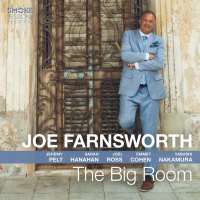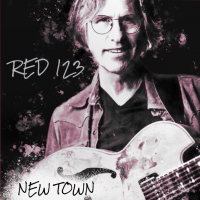Home » Search Center » Results: Rabih Abou-Khalil
Results for "Rabih Abou-Khalil"
Rabih Abou-Khalil / Joachim Kuhn / Jarrod Cagwin: Journey to the Centre of an Egg

by AAJ Staff
The amount of time that Rabih Abou-Khalil had to wait to receive proper recognition in North America was almost criminal. After amassing ten releases on the German Enja label, the Lebanese oud virtuoso finally penetrated the Western hemisphere through a licensing deal with Montreal's Justin Time and the release of 2004's border-bridging sextet effort, Morton's Foot. ...
Morton
Label: Justin Time Records
Released: 2004
Track listing: Ma Muse M'abuse; Morton's Foot; Il Ritorno del Languore; Lobotomie Mi Baba Lu; L'histoire d'un Parapluie; O Papaia Balerina; Dr. Gieler's Wiener Schnitzel; Il Sospiro; Hopping Jack; Waltz for Dubbya; The Return of the Maltese Chicken.
Morton's Foot
Label: Enja Records
Released: 2004
Track listing: Ma Muse M''abuse; Morton's Foot; Il Ritorno del Languore; Lobotomie Mi Baba Lu; L'Histoire d'un Parapluie; O Papaia Balerina; Dr> Gieler's Wiener Schnizel; Il Sospiro; Hopping Jack; Waltz for Dubbya; The Return of the Maltese Chicken
Rabih Abou-Khalil: Morton

by Jim Santella
Lebanese oud master Rabih Abou-Khalil leads this exciting sextet through a session of his originals. The music, while carrying a distinctive Middle Eastern flavor, can only be called jazz. The group's spontaneity and fresh drive introduce elements that we only find in that portion of the arts where improvisation reigns supreme and swing weaves itself around ...
Rabih Abou-Khalil: Morton's Foot

by AAJ Staff
It's not enough for Lebanese oud player Rabih Abou-Khalil to bring the Middle Eastern oud tradition to his reinvented version of world jazz. He also brings in the accordion (in the hands of Luciano Biondini, an Italian) for European emphasis, the tuba (Frenchman Michel Godard) for a touch of New Orleans funk, and bass vocals (Sardinian ...
Rabih Abou-Khalil: Morton's Foot

by John Kelman
The definition of jazz is often a hotly contested topic. A more parochial view has it rooted in black American folk music, with somewhat narrow criteria that revolve around certain harmonies and rhythms. A broader view has it based in an improvisational spirit that can be rooted in the folk music of any country. Whether it ...



















